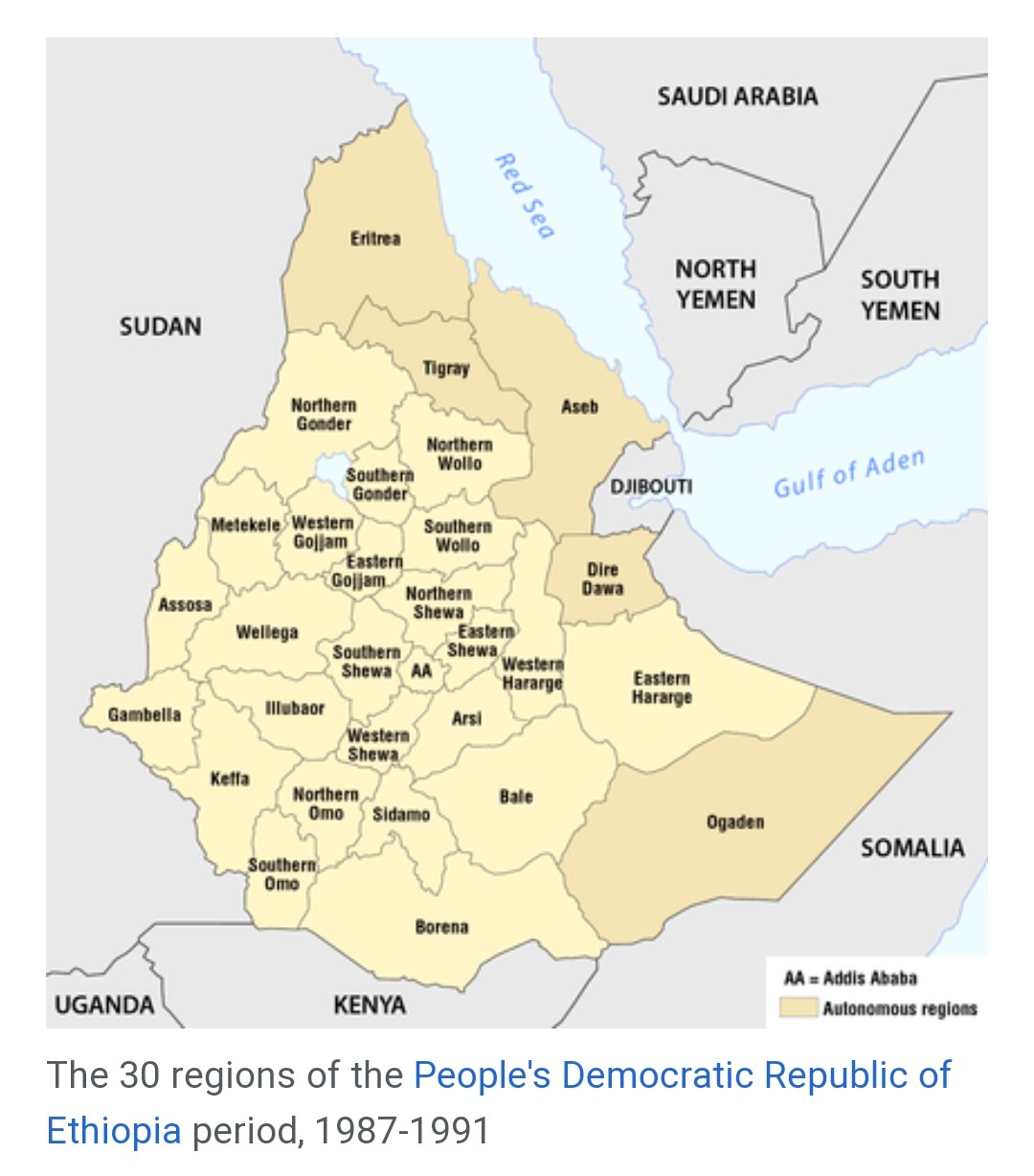Fighting has been going on since November 2020 in Ethiopia one of the 19 east african countries with around 12 crores population in the Horn of Africa, being destabilized and leaving thousands of people dead with 350,000 others living in famine conditions.
Since 1994, Ethiopia has had a federal system in which different ethnic groups control the affairs of 10 regions like different states almost as in countries like India.
The Tigray People's Liberation Front (TPLF) was influential in setting up this federal system. It was the leader of a four-party coalition that governed Ethiopia from 1991, when a military regime was ousted from power.
Under the coalition, Ethiopia became more prosperous and stable, but concerns were routinely raised about human rights and the level of democracy.
Eventually, discontent morphed into protest, leading to a government reshuffle that saw Mr Abiy appointed prime minister on 2018. A member of the Oromo, Ethiopia's largest ethnic group, Mr Abiy made appeals to political reform, unity and reconciliation in his first speech as prime minister.
His agenda was spurred by the demands of protesters who felt Ethiopia's political elite had obstructed a transition to democracy. Mr Abiy liberalized politics, set up a new party (the Prosperity Party), and removed key Tigrayan government leaders accused of corruption and repression.
Meanwhile, Mr Abiy ended a long-standing territorial dispute with neighboring Eritrea, earning him a Nobel Peace Prize in 2019. These moves won Mr Abiy popular acclaim, but caused unease among critics in Tigray. Tigray's leaders saw Mr Abiy's reforms as an attempt to centralize power and destroy Ethiopia's federal system.
The feud came to a head in September, when Tigray defied the central government to hold its own regional election. The central government, which had postponed national elections because of coronavirus, said it was illegal.
The rift grew when the central government suspended funding for Tigray and cut ties with it in October. At the time, Tigray's administration said this amounted to a "declaration of war".
Tensions increased, and the eventual catalyst was when Tigrayan forces were accused of attacking army bases to steal weapons. The conflict started on November 4th 2020 when Ethiopian Prime Minister Mr.Abiy Ahmed ordered a military offensive against regional forces in Tigray. Soldiers from Eritrea are also fighting in Tigray for the Ethiopian government. All sides have been accused of atrocities.
The TPLF also called out the prime minister for his "unprincipled" friendship with Eritrean President Mr.Isaias Afwerki, who has since sent troops to support Mr Abiy in Tigray.
More than two million of Tigray's six million people have fled their homes since 4 November 2020, when Mr Abiy ordered an invasion. Tens of thousands of them have sought refuge in neighboring Sudan.
The TPLF has been designated a terrorist organization. Resistance fighters have formed the Tigray Defence Forces (TDF), incorporating both TPLF and non-TPLF members.
With the communications largely cut in Tigray, the exact number of casualties is not clear and aid workers have been unable to access areas. According to Researchers there have been at least 10,000 reported deaths and 230 massacres. There is also a concern that the conflict could further exacerbate ethnic tensions and could lead to the break-up of the country.
Tigray argued at the time that the central government had not been tested in a national election since Mr Abiy's appointment as prime minister. Polls have since just been held in some parts of the country. A power struggle, an election in Tigray region also the non-conducting of general national poll and a push for desired political reform are among several factors that led to the crisis.
WRF suggestions :
1. Ensure decentralization of powers to autonomous regions wherever required.
2. Treat all ethnic groups equal.
3. Ask for help immediately from UNO to resolve the issue amicably with give and take school of thought.
4. Have dialogues with the leaders of Tigray region with the help of some neutral outside countries / Organizations.
5. Avoid break away of the country by further escalating the problem.
6. Concentrate more on the real developments to feed the hunger in place of more interest on centralization of powers as of an authoritarian government.
*Note : World Reform Foundation is willing to do peace brokerage in this crisis if concerned parties are interested.







